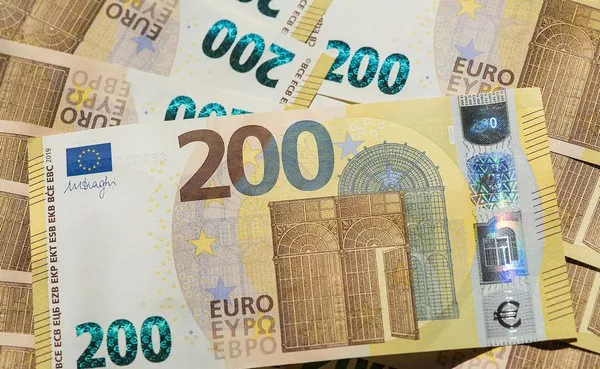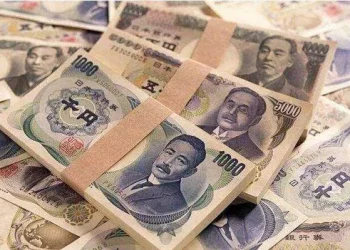Currency exchange plays a pivotal role in global trade, tourism, and investment. As businesses and individuals increasingly engage in international transactions, understanding how exchange rates fluctuate and what factors influence them becomes crucial. In this article, we will explore the question: How much is 60 Euro in Rupees? In doing so, we will also examine the fundamentals of currency exchange, how exchange rates are determined, and the implications of currency fluctuations for traders, investors, and the global economy.
Understanding Currency Exchange Rates
At its core, a currency exchange rate is the price of one currency in terms of another. For example, if you want to know how much 60 euros (EUR) is worth in Indian rupees (INR), you need to know the current exchange rate between the Euro and the Rupee. This rate constantly changes due to a variety of economic, political, and market factors.
In the foreign exchange (Forex) market, currencies are traded in pairs, with the EUR/INR being one such example. The first currency in the pair (EUR) is referred to as the “base currency,” while the second currency (INR) is called the “quote currency.” A price of 1 EUR = 90 INR, for example, means that one Euro can be exchanged for 90 Indian rupees.
To calculate how much 60 EUR is in INR, you simply multiply the amount in Euros by the exchange rate:
60EUR×90INR/EUR=5400INR
Thus, 60 Euros would be worth 5,400 Indian rupees at an exchange rate of 1 EUR = 90 INR. However, exchange rates fluctuate, so the amount you get in Rupees can vary depending on when you make the conversion.
The Role of the Forex Market
The foreign exchange market (Forex or FX) is the largest and most liquid financial market in the world, with a daily trading volume exceeding $6 trillion. In Forex, currencies are traded based on supply and demand dynamics. Several factors influence these dynamics, which, in turn, affect exchange rates.
Factors That Influence the EUR/INR Exchange Rate
Several factors can cause the value of the Euro against the Indian Rupee (EUR/INR) to fluctuate. Here are some of the most significant:
1. Interest Rates
Interest rates set by central banks have a profound impact on currency values. When the European Central Bank (ECB) raises interest rates, the Euro becomes more attractive to investors looking for higher returns. Conversely, if the Reserve Bank of India (RBI) raises interest rates, the Indian Rupee may appreciate as capital flows into India for better returns on investments.
2. Economic Data and Indicators
Economic performance indicators, such as GDP growth, employment figures, inflation rates, and trade balances, can influence a currency’s strength. Strong economic data from the Eurozone, such as rising GDP or low unemployment, can strengthen the Euro against the Indian Rupee.
3. Political Stability and Economic Policy
Political events, elections, and changes in government policies can also affect the exchange rate between EUR and INR. For instance, if there is political instability in the Eurozone, it may weaken the Euro relative to the Rupee. On the other hand, positive economic reforms or stability in India may lead to a stronger Rupee.
4. Inflation
Inflation erodes the purchasing power of a currency, and countries with lower inflation rates tend to have stronger currencies. If the Eurozone experiences lower inflation compared to India, the Euro could appreciate against the Rupee.
5. Commodity Prices
India is a major importer of oil, and fluctuations in global oil prices can significantly affect the value of the Rupee. For instance, rising oil prices may lead to a depreciation of the Indian Rupee due to higher import costs, which in turn affects the EUR/INR exchange rate.
6. Foreign Investment and Capital Flows
Foreign direct investment (FDI) and portfolio investment flows have a direct impact on the demand for a country’s currency. A rise in foreign investment in India could increase the demand for Indian Rupees, strengthening the currency against the Euro.
How to Convert Euros to Indian Rupees
To convert 60 Euros to Indian Rupees, you need to first know the current EUR/INR exchange rate. This rate can be obtained from various financial sources, including:
Forex Trading Platforms: Forex brokers and online platforms provide real-time exchange rates.
Banks and Currency Exchange Services: Financial institutions offer exchange rate information, though the rates may not be as favorable as those in the Forex market.
Online Currency Converters: Websites like XE.web and OANDA.web provide updated exchange rates and can instantly convert amounts between different currencies.
The Impact of Exchange Rate Fluctuations
Currency exchange rates are highly volatile and subject to rapid fluctuations. These fluctuations can have a significant impact on various sectors of the economy, from international businesses to individual travelers. For example, if the Euro strengthens against the Rupee, European exporters may find it more expensive to sell their products in India, while Indian exporters may find it cheaper to sell goods in the Eurozone.
On the other hand, if the Rupee appreciates against the Euro, Indian tourists traveling to Europe will find their trip more affordable, while European tourists visiting India may face higher costs.
The Forex Market for Traders
For foreign exchange traders, the EUR/INR pair offers significant opportunities. Forex traders speculate on the movements of currency pairs to make a profit. Understanding the factors influencing the EUR/INR exchange rate, such as economic data releases, geopolitical events, and central bank policies, is essential for successful trading.
Trading Strategies in the Forex Market
Forex traders use a variety of strategies to take advantage of currency fluctuations:
Trend Following: Traders look for trends in the market (upward or downward movements) and trade in the direction of the trend.
Range Trading: Traders identify support and resistance levels and buy when the currency hits the support level and sell at the resistance level.
Carry Trading: This involves borrowing in a currency with a low interest rate and investing in a currency with a higher interest rate. Traders profit from the interest rate differential.
News Trading: Traders react to economic news releases, such as GDP growth or employment reports, which may cause volatility in currency pairs.
Currency Conversions for Travelers
For travelers, understanding how to convert 60 Euros to Indian Rupees is a straightforward task but becomes more complicated when factoring in exchange rates and service fees. Currency exchange services, such as those offered by banks or exchange booths at airports, typically charge a margin on the official exchange rate. This means that the actual rate you receive might be slightly worse than the rate quoted online.
Tips for Getting the Best Exchange Rate
Shop Around: Compare rates from different sources (banks, Forex brokers, currency exchange services).
Use Online Tools: Use online calculators to get an idea of the current exchange rate.
Avoid Airport Exchange Counters: These often offer less favorable rates compared to local banks or Forex brokers.
Consider Forex Cards: Prepaid Forex cards can offer competitive exchange rates and help avoid hefty fees associated with cash exchange.
Conclusion
The question of how much 60 Euro is in Rupees does not have a static answer, as the value of currencies is constantly changing. The EUR/INR exchange rate fluctuates based on various factors, including interest rates, inflation, political stability, and global economic conditions. By understanding the factors influencing exchange rates and how currency conversions work, individuals and businesses can make informed decisions in a globalized economy.
Whether you are a Forex trader, a business owner engaged in international trade, or a traveler, staying updated on the latest exchange rates and understanding the dynamics of the currency market can help you maximize the value of your money. As the world becomes more interconnected, the importance of currency exchange and its impact on global trade and personal finance will continue to grow, making it essential for anyone engaging in international transactions to understand how these markets operate.
Related Topics:

























